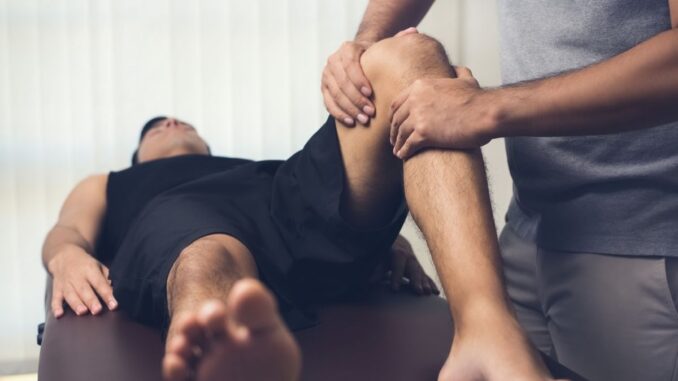
The only thing worse than losing an athletic contest is adding injury to the insulting defeat. Not being able to compete feels like being close to rock bottom for many passionate athletes. Fortunately, following the best ways to recover from a sports-related injury will have you on the playing field before you know it.
Enriching Diet
One adage states, “You are what you eat.” With a sports-related injury, your diet significantly influences your road to recovery. Food with an abundance of calcium and protein, fatty acids, and vitamins can expedite your rehab process.
High protein foods help rebuild your muscles, and vitamin C improves tissues while limiting inflammation. Assuming there are no medical or personal limitations on your diet, you should consider consuming chicken, fish, nuts, Greek yogurt, and milk daily.
RICE
While eating whole grain rice might be beneficial, RICE has nothing to do with dietary practices. Instead, RICE is an acronym for rest, ice, compression, and elevation. If you are struggling with an injury, you must rest the affected area, not further aggravate it.
You’ll want to indirectly apply ice to the injury for 20 minutes in two to three-hour intervals. Doing so should limit any swelling that builds around the problem area. Using a compression sleeve can apply additional pressure to the injury, helping the blood flow. Lastly, always try to elevate the injury if possible. Your target is to have it above your heart.
Massage and Physical Therapy
Physical therapy is a regular part of the process when recovering from sports injuries. Physical therapy supports athletes in regaining strength and movement in injured areas of the body. This kind of recovery can also aid athletes in managing pain or preventing future injuries. Another form of therapy is massage treatment, which can contribute to the relaxation of your fascia, increasing your mobility.
Receive an Accurate Diagnosis
Moderate sprains and strains typically heal dramatically after a short hiatus. However, if athletes are not improving, they should consult a sports physician and, if necessary, undergo an MRI.
A comprehensive clinical examination will accurately diagnose and assist in focusing the rehabilitation approach to facilitate a speedier recovery. Additionally, recognizing the nature of the injury aids significantly in mental preparation for healing.
Unfortunately, accidents happen during physical activity, especially in high-intensity sports. Understanding the best ways to recover from a sports-related injury lets you know there is light at the end of the tunnel.


